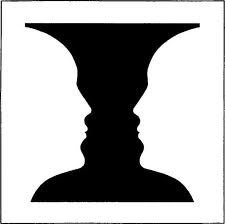Philosophy « Colin Wilson online:
One concept I recall from my Colin Wilson reading phase was Intentionality. This was one of the ideas I have stuck with as being useful. I associate it (rightly or wrongly) with Aldous Huxley and the “Doors of Perception”. We are capable of seeing far more than we do. We evolved to see everything and then evolved to select to see only what we need to survive. We can transcend our survival mode of perception with “intentionality”. I think that sums it up.
“Wilson has a sporting analogy for philosophy: ‘You could say on the billiard table of philosophy there are only two pockets – the positive and the negative. In philosophy, all kinds of people who belong to the negative side like David Hume, don’t really believe that the human will serves any purpose whatever. In other words it seems to me that in philosophy you’ve got people who believe that to a large extent, will really matters, and that we human beings have a certain control over our lives, and people who belong to the other side. And basically Derrida is one of these.’ He describes intentionality with another sporting analogy here: ‘Intentionality should not be seen as a synonym for ‘directionality’, an essentially static attribute, but as a dynamic description, involving consciousness and its freedom to act. It is better described by analogy with a baseball pitcher than with a signpost. Paul Ricoeur was the first to state this with clarity. I will suggest that Husserl saw intentionality as a creative act, capable of altering consciousness, and potentially as a kind of mystical discipline.’ That is to say, consciousness is active (perception is intentional). You can see this in Fitche’s statement ‘to be free is nothing; to become free is heavenly.’ This is completely opposed to the passive ‘signpost philosophy’ (semiotics) of Barthes and the ‘language speaks us’ of Derrida.
All of Wilson’s work is concerned with Husserl’s techniques [and Nietzsche’s optimism]. Not just his philosophy books though: the true crime paperbacks, the luridly covered supernatural volumes, the pulp fiction and even the books on booze or music are all in the positive pocket. In The New Existentialism he explains why – ‘Phenomenology is not a philosophy; it is a philosophical method, a tool. It is like an adjustable spanner that can be used for dismantling a refrigerator or a car, or used for hammering in nails, or even for knocking somebody out.’ (p.920).
In the seven volumes of his excellent ‘Outsider cycle’ (1956-1966), Wilson demonstrates the phenomenological method. ‘Husserl has shown that man’s prejudices go a great deal deeper than his intellect or his emotions. Consciousness itself is ‘prejudiced’ – that is to say, intentional.’ (ibid. p 54). So, in order to really experience phenomena, we have to grasp it, like a hand picking up an object. This selectivity is so deeply entrenched in our perceptions that we fail to see it operating and think that things just ‘happen’. But it is not so: perception is intentional, rather like an arrow fired by an archer. The illustration below shows this selectivity in action, as we can choose to see either the faces or the vase, rather like flipping a coin.

